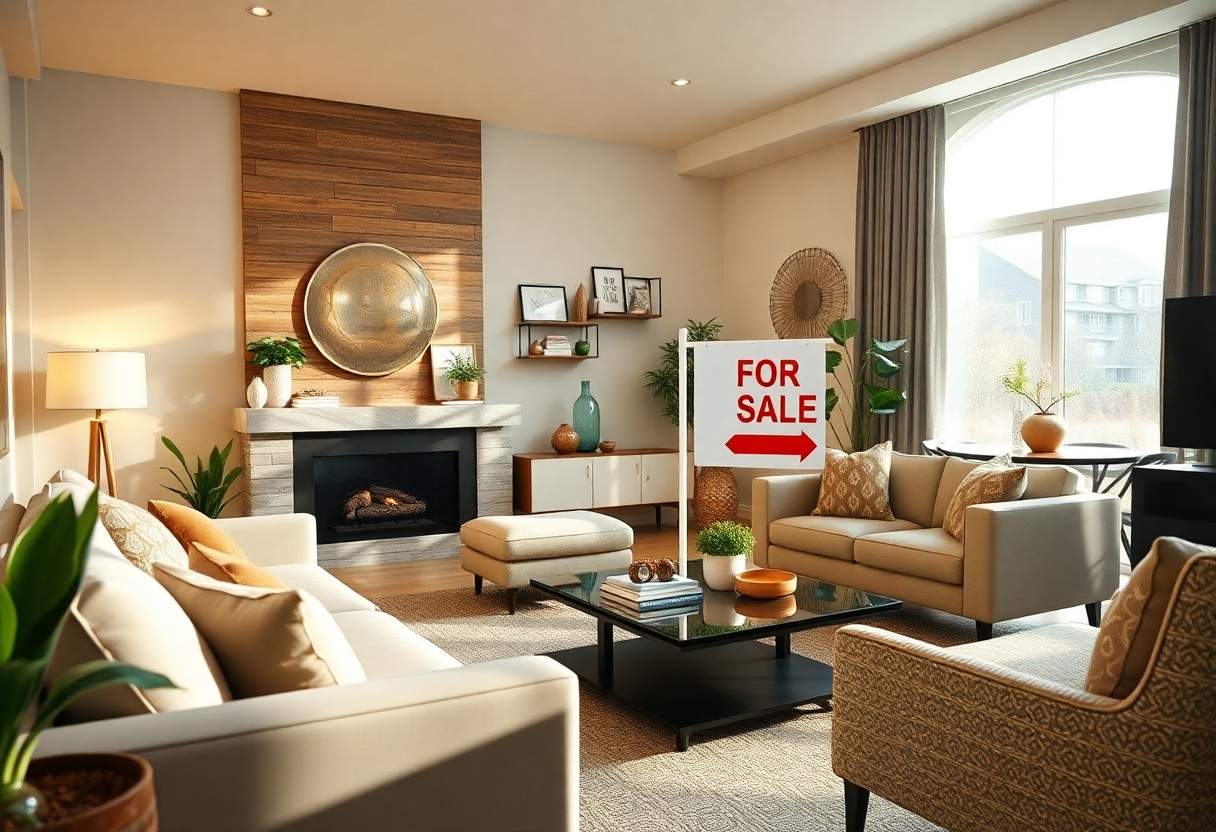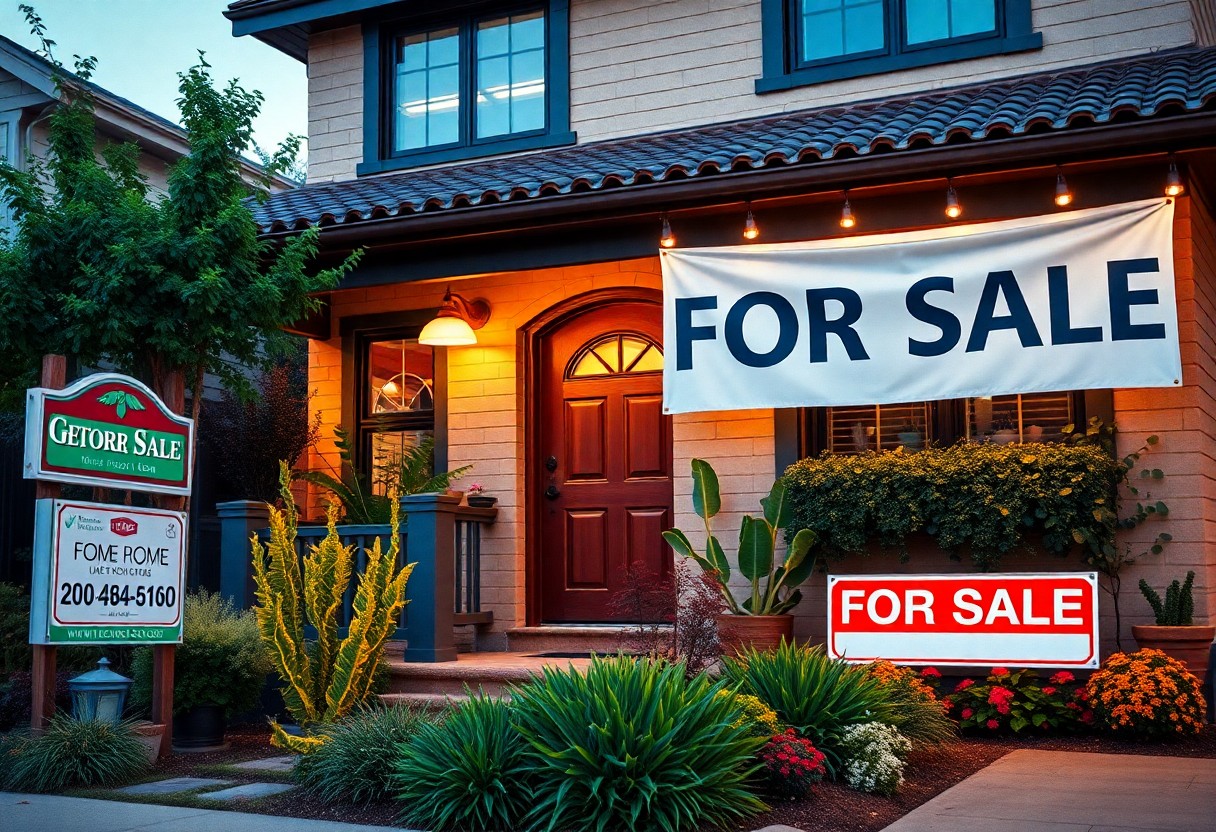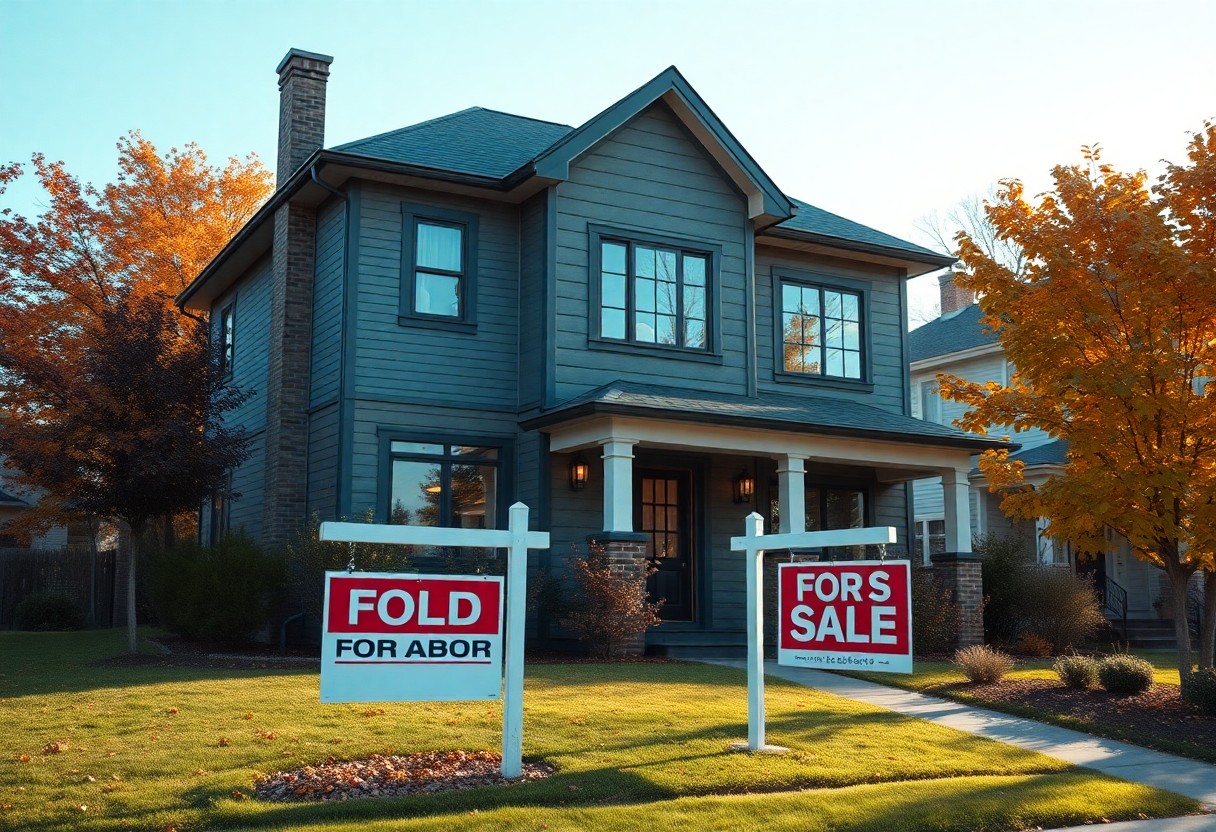You can make a significant impact on the sale of your home by utilizing effective marketing strategies. Understanding your target market and leveraging both online and offline platforms can elevate your chances of attracting potential buyers. Consider tactics such as professional photography, virtual tours, and engaging social media posts to showcase your property in the best light. To gain further insights, check out this article on How to Market to Homeowners & New Buyers: 7 Ways. Implement these strategies to ensure a smooth and successful home-selling process.
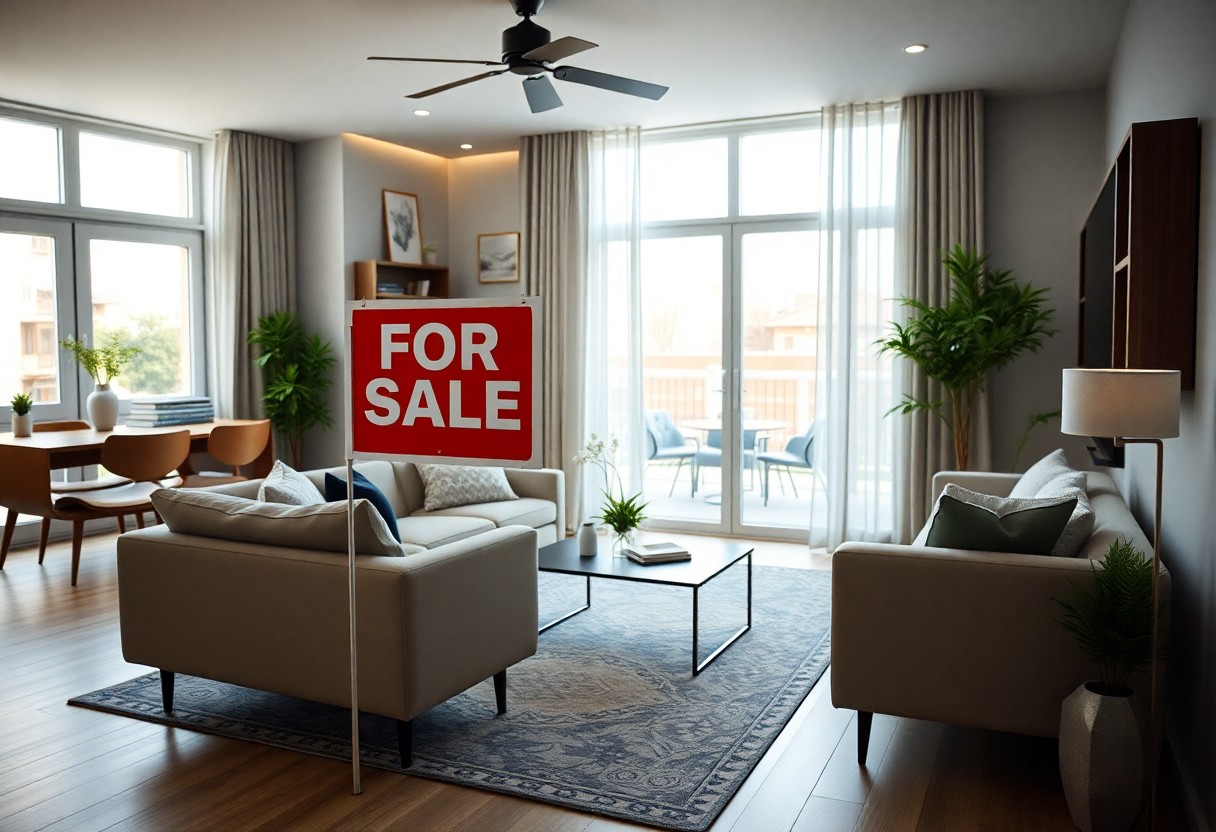
Key Takeaways:
- Enhance curb appeal by making small upgrades to the exterior of your home, such as landscaping and fresh paint.
- Set a competitive and realistic asking price by researching comparable home sales in your area.
- Utilize high-quality photos and virtual tours to create an engaging online listing that attracts potential buyers.
- Market your home through multiple channels, including social media, online real estate platforms, and local listings.
- Stage your home effectively to help buyers envision themselves living in the space, highlighting its best features.
- Consider working with a real estate agent who has a strong marketing strategy and local market expertise.
- Host open houses and private showings to generate interest and provide opportunities for potential buyers to explore the home.
Understanding Market Factors
Before you explore selling your home, it’s vital to grasp the market factors at play. These elements can significantly influence your home’s value and attractiveness. Focus on:
- Supply and Demand
- Economic Indicators
- Seasonality
- Local Market Trends
- Interest Rates
Assume that a well-informed seller stands a much better chance of successfully marketing their property.
Analyzing Current Market Trends
Market trends play a vital role in determining how you position your home for sale. Stay updated on price fluctuations, buyer preferences, and emerging neighborhoods. By analyzing these trends, you can tailor your marketing strategy to highlight features that align with current buyer interests, enhancing your home’s appeal and overall selling potential.
Assessing Local Competition
You need to be aware of the competition in your area when selling your home. Evaluating similar properties in your neighborhood can give you insight into what buyers are looking for and how to price your own home effectively.
Market analysis of local competition includes examining pricing strategies, property conditions, and provision of amenities. Look for successful listings to understand what features drove the sales and how they compared to your home. If your home stands out with unique upgrades or additional living space, you can leverage these advantages in your marketing efforts. Conversely, if homes are selling quickly at lower prices, you may need to reconsider your pricing to attract buyers without sacrificing potential profits.
1. Boost curb appeal with landscaping and outdoor improvements.
2. Stage interiors to highlight space and potential.
3. Use professional photography for online listings.
4. Leverage social media platforms to reach broader audience.
5. Host open houses to attract prospective buyers.
6. Collaborate with a real estate agent for expert advice.
Preparing Your Home for Sale
Any successful sale starts with proper preparation of your home. Begin by decluttering and deep cleaning every room to create a fresh, inviting atmosphere. This not only maximizes space but also enhances overall appeal. You might also want to consider minor repairs and fresh paint, as these small investments can yield significant returns. Make sure to stage your home effectively, showcasing its best features and ensuring ample natural light. You want potential buyers to envision themselves living in the space.
Home Staging Tips
Little details can make all the difference when it comes to staging your home. Consider the following tips to create an inviting environment:
- Remove personal items to allow buyers to envision their life in the space.
- Use neutral colors to appeal to a wider audience.
- Highlight your home’s strengths by rearranging furniture and minimizing clutter.
- Consider professional staging services for optimal results.
Thou will ensure a more appealing atmosphere that attracts buyers.
Enhancing Curb Appeal
Preparing your home for sale includes enhancing curb appeal, which is often the first impression buyers will have of your property. A well-maintained exterior can significantly impact their interest in viewing the interior. From simply mowing the lawn and trimming hedges to more involved tasks like painting your front door or updating outdoor lighting, every detail counts. By making your home inviting and visually appealing, you set the stage for a favorable viewing.
A well-kept lawn, vibrant flowers, and a tidy pathway can create a warm and welcoming atmosphere that invites potential buyers in. Pay attention to paint conditions on doors and trim, as these can create a immediate perception of care and maintenance. Additionally, consider new outdoor fixtures to enhance the overall aesthetic. Just as important, avoid any clutter in front areas which may signal neglect. To put it briefly, enhancing curb appeal is vital for increasing buyer interest and presenting your home in the best possible light.
Pricing Strategies for Homeowners
After determining to sell your home, it’s imperative to adopt effective pricing strategies to attract buyers while maximizing your return. Your listing price is critical in a competitive market; it can make or break your selling experience. Establishing the right price requires a balanced approach that considers both market trends and your personal goals.
Setting the Right Price
Clearly, setting the right price involves an in-depth analysis of your home’s value. Conduct research on recent sales in your area, evaluate your home’s unique features, and consider your timeline for selling. By establishing a well-informed price, you can increase interest from potential buyers while avoiding extended market time.
Using Comps to Your Advantage
An effective way to set your home’s price is by leveraging comparable sales, commonly known as “comps.” Comps are recent sales of similar properties within your neighborhood and provide valuable insights into your home’s market value.
Another approach to using comps effectively is to analyze the most relevant properties that have sold recently. Look for homes with similar square footage, number of bedrooms, bathrooms, and amenities. Pay attention to sale prices and the time they spent on the market to gauge demand. If similar homes sold quickly at a certain price point, you can confidently adjust your asking price to align with this data. However, don’t ignore unique features that set your home apart, as they may justify a higher price. Always use comps as a guide, but factor in your home’s distinct qualities to create a competitive yet attractive pricing strategy.
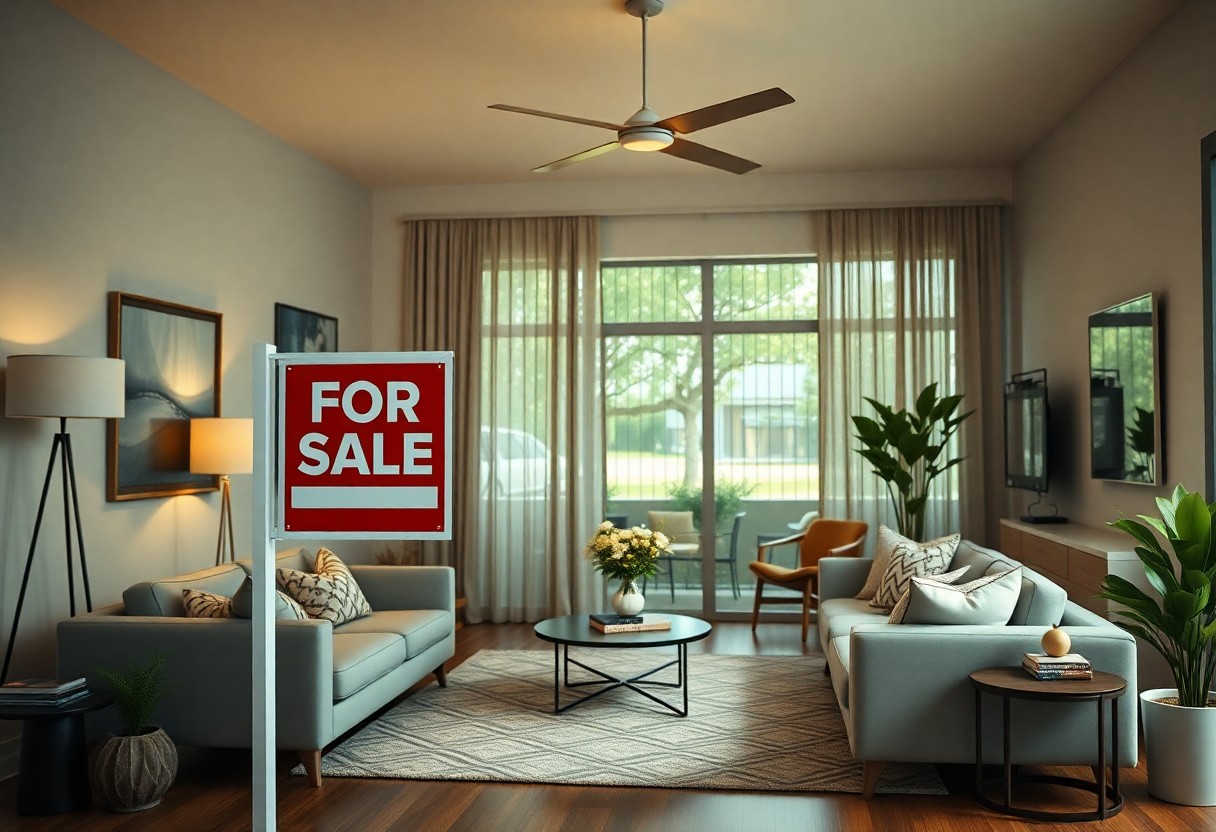
Marketing Your Home Effectively
For homeowners initiateing on the journey to sell their property, understanding how to market your home effectively is key. Employing the right strategies can help you stand out in a competitive market and attract potential buyers. Focus on presenting your home in its best light and creating a compelling narrative that resonates with prospective homeowners.
Online Listing Tips
Some effective online listing tips can significantly enhance your home’s visibility. Utilize these strategies to captivate potential buyers:
- Write an engaging and detailed home description using strong adjectives.
- Include high-quality images showcasing your property.
- List your home on multiple reputable platforms.
- Optimize your listing for SEO with relevant keywords.
Perceiving the visual and descriptive presentation of your home is necessary in making a lasting impression.
Utilizing Social Media
To maximize your home’s exposure, leverage social media platforms as a powerful tool for marketing. Frequent posts about your property on Facebook, Instagram, and Twitter can help you reach a wider audience. Utilize targeted ads to draw in specific demographics or local buyers. Engaging content, such as virtual tours or live Q&A sessions, can create excitement around your listing.
Utilizing social media not only broadens your reach but also allows you to showcase your home’s personality. Highlight the most attractive features of your property, like its backyard or modern kitchen, through vibrant images and captivating stories. Be wary of oversharing personal details which could misrepresent your property’s appeal. Stay active and responsive to inquiries, as this builds trust with potential buyers. The right social media strategy can significantly enhance your home’s market presence.
Open Houses and Showings
Despite the digital age, open houses and private showings remain powerful methods for displaying your home to potential buyers. These personal experiences allow buyers to appreciate your property’s unique features and envision themselves living there. Be sure to prepare your home adequately and create an inviting atmosphere to enhance the chances of a sale.
Hosting Effective Open Houses
There’s a fine art to hosting an effective open house, and it involves careful planning. Create an inviting ambiance by decluttering, staging, and ensuring your home is well lit. Promote your open house through social media, flyers, and local community boards to draw in the maximum number of attendees.
Conducting Private Showings
While open houses serve to attract a broader audience, private showings offer a more tailored experience for serious buyers. This personalization allows you to engage directly with prospective buyers, answering their questions and addressing their concerns in real time.
Another key advantage of private showings is the ability to control the environment. You can highlight your home’s best features and create a relaxed atmosphere, allowing buyers to explore without distraction. During these showings, provide informative materials about your home and neighborhood, and consider being flexible with appointment times to accommodate potential buyers’ schedules. Ensuring your home is spotless and welcoming further enhances the overall impression and increases the likelihood of receiving a competitive offer.
Negotiation Tips for Homeowners
Now it’s time to get into the art of negotiation, an vital skill when selling your home. To secure the best possible deal, keep these tips in mind:
- Stay calm and patient.
- Know your bottom line.
- Be prepared to make concessions.
- Listen carefully to buyer motivations.
- Keep the lines of communication open.
After implementing these strategies, you’ll be better positioned to achieve a favorable outcome in your home sale.
Understanding Buyer Psychology
The more you understand buyer psychology, the better equipped you are to present your home appealingly. Buyers often make emotional decisions, therefore highlighting the positive features of your home can connect with them on a deeper level. Keeping in mind their motivations, such as family needs or investment potential, will help you frame your negotiation approach effectively.
Strategies for Counteroffers
Some effective strategies for crafting counteroffers require a focus on maintaining flexibility while protecting your interests. You should assess buyer feedback carefully and use it to adjust your pricing. Present your counteroffer confidently and always back it up with rationale, whether it’s market data or the unique attributes of your home.
Homeowners should always remain aware of the impact of their counteroffers. Each counteroffer is an opportunity to negotiate terms that work in your favor, but make sure you don’t alienate potential buyers with unreasonable demands. Highlight your home’s unique features as leverage, and consider how various scenarios can affect the sale. By keeping your priorities clear and remaining adaptive, you can navigate through counteroffers successfully, ensuring you attain an outcome that meets your needs.
Summing up
Now that you’ve explored effective strategies for marketing your home, it’s time to implement these techniques to attract potential buyers. By enhancing your home’s curb appeal, staging it effectively, utilizing professional photography, and leveraging social media, you can significantly increase your home’s visibility. Additionally, understanding your market and setting a competitive price will position you for successful negotiations. Stay proactive and adaptable throughout the selling process, and watch as your efforts translate into a successful home sale.
FAQ
Q: What are the first steps to effectively market my home?
A: Start by evaluating your home’s condition and determining any necessary repairs or updates. After that, set a competitive asking price based on comparables in your neighborhood. Good photography is crucial, so consider hiring a professional photographer to showcase your property in the best light. Lastly, create a marketing plan that includes online listings and traditional methods.
Q: How can I enhance my home’s curb appeal?
A: Curb appeal is vital for making a good first impression. Simple enhancements include landscaping improvements, fresh paint on the front door, and clean pathways. Ensure that windows are clean and outdoor furniture is arranged attractively. Small updates such as new house numbers or a welcoming mat can also make a difference.
Q: Should I use a real estate agent or sell my home independently?
A: The decision often depends on your comfort level with the sales process. A real estate agent can offer expertise in pricing, negotiation, and market trends. Conversely, selling independently may save on commission fees but demands more effort on your part. Assess your knowledge and resources to make the best choice.
Q: What online platforms should I use for advertising my home?
A: Popular online platforms include Zillow, Realtor.com, and Trulia, which reach a broad audience. Social media platforms like Facebook and Instagram can also be effective for showcasing your home, especially through targeted ads. Create engaging content and consider leveraging local community groups to maximize visibility.
Q: How can I stage my home for potential buyers?
A: Staging involves arranging furniture and decor to highlight your home’s strengths. Start by decluttering and depersonalizing spaces. Adding neutral decor, improving lighting, and arranging rooms to flow well can help buyers envision themselves in the space. If needed, professional stagers can provide valuable insights and resources.
Q: Is hosting an open house beneficial?
A: Yes, open houses can attract potential buyers and generate interest. They provide opportunities for people to view your home’s layout and features up close. To maximize success, choose a strategic time, promote the event online and with signs, and ensure the space is clean and inviting. Consider providing refreshments to create a welcoming atmosphere.
Q: How can I evaluate offers effectively when I receive them?
A: When evaluating offers, consider not just the price but also the terms, including contingencies and the buyer’s financial qualifications. Look for flexibility on closing dates and deposit amounts. Working with a real estate agent can help you analyze offers and understand which one best aligns with your goals.

